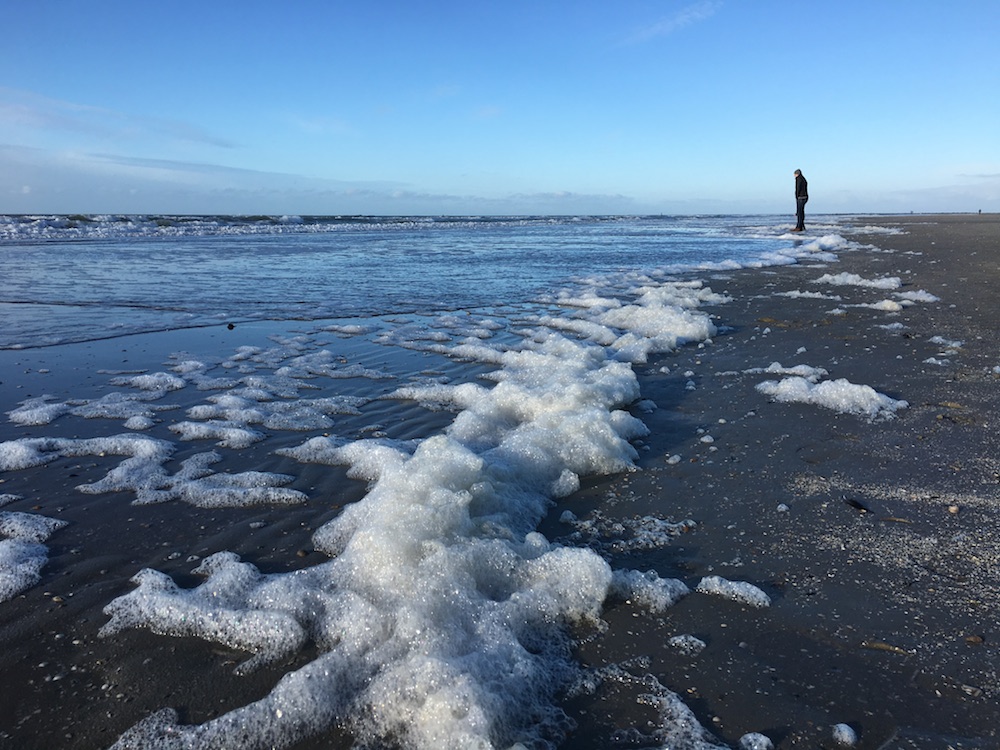Don’t let children play in sea foam because of PFAS

Government officials have sharpened their warnings about not letting children play in sea foam while at the beach because it could contain high concentrations of toxic PFAS, broadcaster NOS said on Wednesday.
Nevertheless, neither national, regional or local governments feel the need to highlight the warnings to beachgoers at popular resorts, NOS said.
At the end of last year public health institute RIVM said there were large quantities of PFAS, known as “forever chemicals” in sea foam. The official advice then was to rinse yourself thoroughly at the end of the day, and make sure children and animals swallow as little as possible.
However, the formal advice on website zwemwater.nl was changed in July to recommend that people stay away from the foam and not to let children and animals play it in at all. The same warning has been valid in Belgium for 18 months, NOS said.
The infrastructure ministry told NOS that there is no question of a change in the advice. “The words have been changed to remove uncertainty,” a spokesman said.
Nevertheless, officials had considered adding a warning to the official information boards at Dutch beaches but decided against it, according to the minutes of the meeting, which have been seen by NOS.
The reason for not placing signs, according to the ministry and provinces, is that there is ‘no acute danger’ and that beach visitors ‘do not look at the signs at the beach and regularly ignore warnings’.
Economic motives, such as possible negative effects on tourism, do not play a role, the ministry said. Swimming is already banned at five inland lakes because of the concentrations of PFAS.
Chemicals
Sea foam results from the decomposition of sea algae or water pollution, particularly in windy conditions. PFAS tend to accumulate in sea foam, resulting in higher concentrations compared to seawater, the RIVM said.
Last year the RIVM warned people who go fishing as a hobby to sharply reduce their consumption of fish, shrimp, oysters and mussels caught in the Westerschelde estuary because of chemical pollution.
Fish and shellfish caught in the estuary can contain eight to 10 times the amount of PFAS found in similar products sold in the shops, the RIVM said at the time.
In 2021 it emerged that chemicals company 3M in Belgium was flushing thousands of kilos of PFAS into the river, leading to research into the concentration of the chemicals in fish.
Thank you for donating to DutchNews.nl.
We could not provide the Dutch News service, and keep it free of charge, without the generous support of our readers. Your donations allow us to report on issues you tell us matter, and provide you with a summary of the most important Dutch news each day.
Make a donation